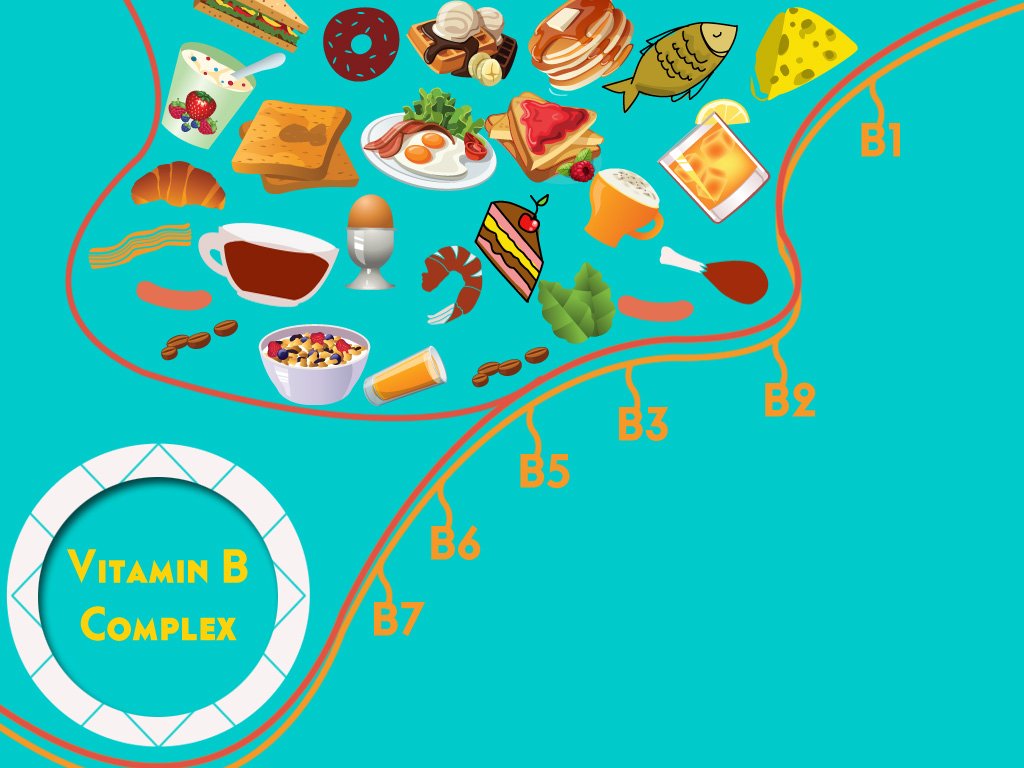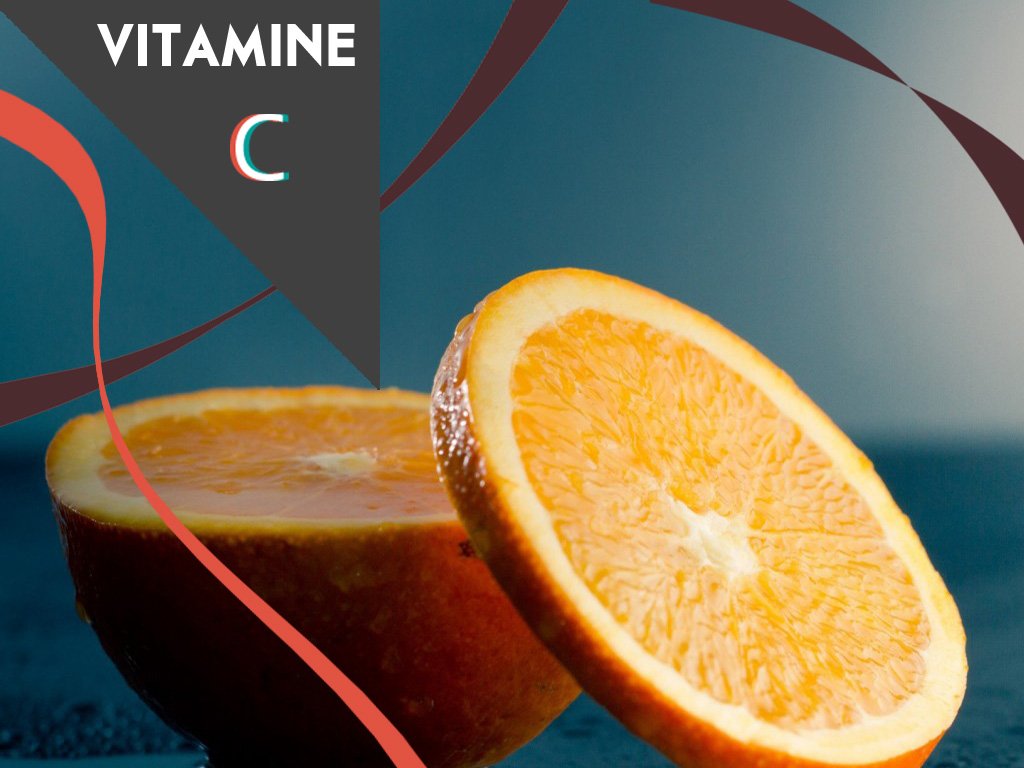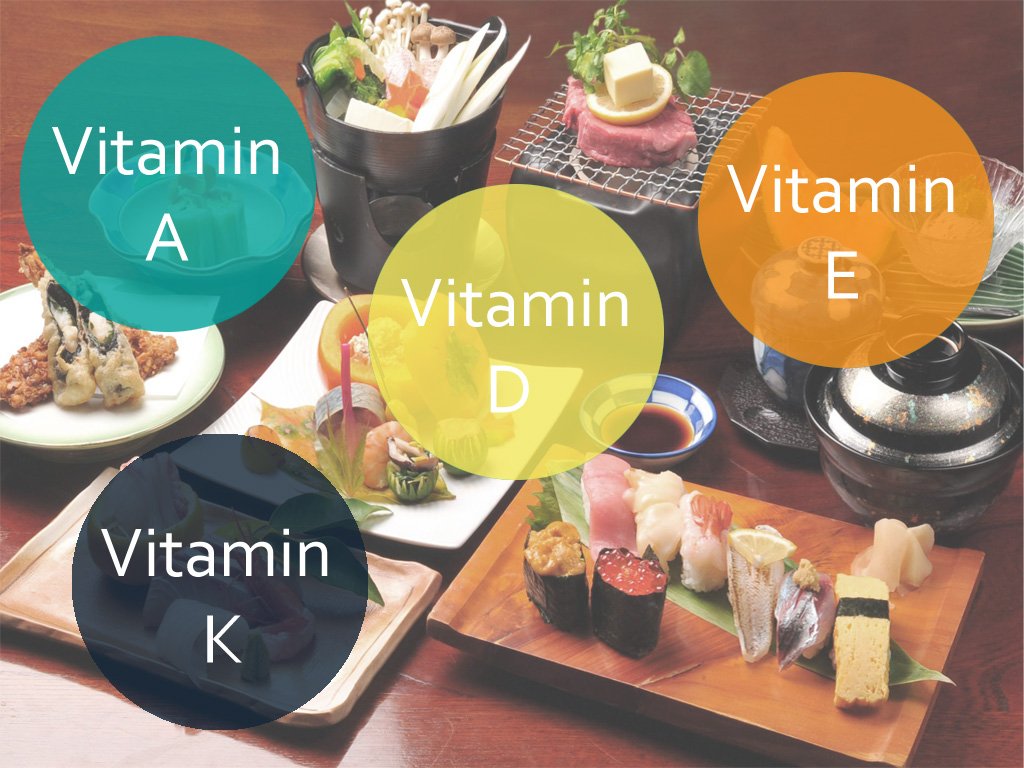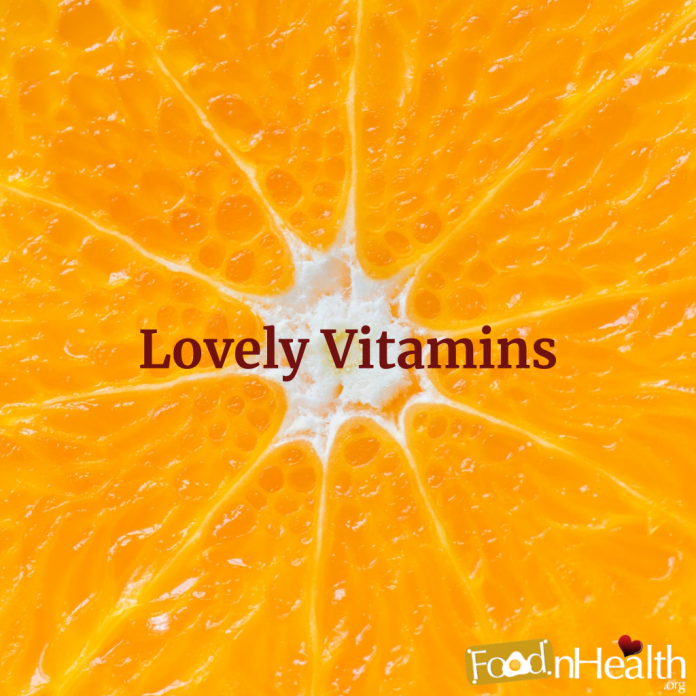Vitamins are the organic compounds that are essentially derived from the foods we eat. They are the vital nutrients that are required in limited and adequate amounts to the smooth functioning of the entire architecture of the body.

Vitamins and Us
Vitamins are something that is required in minimal amounts and are not easily synthesized by the human body and so needs to be supplemented by extra sources – outside the body. Vitamins along with the nutrients break down the proteins enabling the metabolism to stabilize, growth of cells, tissues, and bones which enable a healthy immune system.
Each vitamin is vital, so a shortage of anyone can cause health problems
The Types of Vitamins we Use
Vitamins can be essentially categorized into two types:
- Water-Soluble Vitamins – Vitamin B Complex, Vitamin C (Ascorbic Acid)
- Fat-Soluble Vitamins – Vitamin A, Vitamin D, Vitamin E, and Vitamin K
Let’s know our Vitamins in detail!
Daily Water Soluble Vitamins
- Vitamin B Complex
A total of eight vitamins constitute the entire Vitamin B complex. Each vitamin has its own individual function in the body.

Vitamin B1 does breaking down of food into glucose and prevents the formation of kidney stones.
Vitamins B7, B6, B5, B3 and B2 are essential for converting the glucose into energy – that is the kick-starting ability for the body.
Vitamin B2 (Riboflavin) alleviates symptoms of migraine while Vitamin B6 restrains the making of neurotransmitters. Neurotransmitters consist of histamine which the effect of triggering migraines.
Vitamin B6 promotes cardiac health and prevents the risk of a heart attack while Vitamin B9 protects against pancreas, breast and collateral cancers.
- Vitamin B Complex food source
A diet consisting of a whole lot of varieties like Bananas, kidney beans, nuts citrus fruits, leafy vegetables, chicken, eggs, whole grains, and cereals – name them and they replenish Vitamin B in you.
Vitamin C (Ascorbic Acid)

Vitamin C is the warrior of your system – present in fruits and vegetables, it is a potent antioxidant and fights infections.
Vitamin C helps in the formation of collagen and vital in the development of strong bones, teeth and joints. It is a rich source of antioxidants consisting of antiviral and antibacterial preventing infections, boosts immunity and getting rid of unwanted toxins.
Vitamin C also reduces the risk of cancer and abnormal blood clotting, reducing the potential risk of scurvy and cataract.
- Vitamin C food sources
Vitamin C comes from a variety of foods – name them – strawberries, raspberries, blueberries and fruits such as pineapple, papaya, mango, kiwi, squash, blackcurrants, melon, tomatoes, Citrus fruits and leafy vegetables, red/green peppers, potatoes, broccoli and cauliflower – aah! Vitamin C!
Daily Fat-Soluble Vitamins

- Vitamin A (Retinol) – boosts immune health, helps to develop strong teeth, healthy bones, protection against cataracts, Alzheimer’s disease, arthritis, cardiac problems, and age-related macular degeneration. Vitamin A contains anti-aging properties that prevent the formation of fine lines and wrinkles on the skin assisting in cell rejuvenation.
Vitamin A can be obtained from milk; dairy products fish liver oils, eggs, chicken, liver, beef, kidney, and fruits like mangoes, peaches, apricots, cantaloupe, winter squash, leafy vegetables, pumpkin, carrots, and sweet potatoes – a whole array of them!
- Vitamin D (Cholecalciferol) – concerned with calcium metabolism, they control the absorption of phosphorous and calcium from the small intestine and hence is important for strong teeth and bones.
Vitamin D can be synthesized by Sunlight – apart from that it is available in abundance in cereals, liver, eggs, cod liver oils and oily fish such as sardines, salmon and herring.
- Vitamin E (Tocopherol) – supports cardiac health by maintaining healthy cholesterol levels and improving the body’s immune level. They also reduce the chances of prostate and breast cancer.
Vitamin E can be obtained from many sources – naming a few like Sweet potatoes, asparagus, yams, soy, wheat germ oil, wheat germ, eggs, margarine, Butter, and oils like olive, safflower, peanut, sunflower, and sesame.
- Vitamin K (Phytonadione) – keeps away diseases pertaining to the coronary artery and kidney stones and keeps calcium levels in check for stronger teeth and bones – elevating bone mass avoiding osteoporosis.
Vitamin K can be taken from leafy green vegetables, soybeans, dairy products, meats, legumes.
So, here is the whole Vitamin story – pick the one that suits you best!























